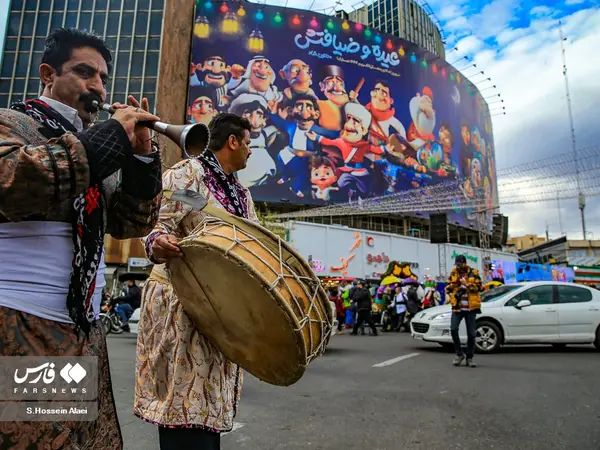On the first day of the Iranian new year Media in Iran highlighted pessimism about the future, warning about the worsening political and economic situation.
Economic analyst Morteza Afghah told centrist news website Entekhab that tensions in Iran's domestic politics will escalate if the government fails to solve the country's economic problems and eliminate the impact of sanctions on the economy.
Afghah further argued that without resolving Iran's nuclear dispute with world powers and securing the lifting of US sanctions, back-breaking inflation in Iran will continue.
Talks with the West to revive the 2015 nuclear accord known as the JCPOA came to a deadlock last September.
Iran is experiencing an annual inflation rate of more than 50 percent for the second year in a row, with food prices rising between 70-100 percent.
The economist also argued that government officials do not realize how far their legitimacy has declined and people no longer believe their promises and statements. He added that the government expects the improvement in the ties with Saudi Arabia to bring about hope in the future of the economy, but without tackling the issue of the JCPOA and reducing regional tensions cannot solve all of the country's problems.
Meanwhile, in an interview with ILNA, conservative political activist Hossein Kanani-Moqaddam asked, "Why the government can negotiate with the enemies, but it is not prepared to hold dialogue with its own citizens?" Highlighting some of Iran's domestic and international political problems, Kanani called for negotiations between the government and political groups to put an end to the worsening impasse as almost all groups except ultraconservatives have been barred from candidacy in parliamentary and presidential elections.
Kanani-Moqaddam further stressed the need for national reconciliation, which would bring various orientations to the forefront of political activity in Iran. "Political groups and organizations should be able to discuss problems with state officials and the people…as a way of addressing major problems." He also called for boosting political participation and "religious democracy" in Iran.
A report in moderate Rouydad24 website quoted Yahya Ebrahimi, a member of parliament, as saying that if lawmakers had been allowed to impeach some minister, the government would have better realized that the country was in a critical situation.
The remark highlighted complaints by many lawmakers during the past year about parliament Speaker Mohammad Bagher Ghalibaf preventing impeachment motions.
Ebrahimi warned that the political and economic situation in Iran is likely to be worsen in the coming months. The low-income strata of the society are going to suffer more than others as "wage-earners live under the poverty line as we have only two economic classes in Iran: The rich and the poor."
Ebrahimi further charged that the Iranian government has left the people to their own devices and is not doing anything to improve the situation. He added that "The current economic team is an insult to the nation's intelligence."
Ebrahimi warned that the social implication of this situation is far dangerous than its economic consequences. Students are abandoning schools, and cases of drug addiction and delinquency are on the rise.” Officials should be held accountable when impoverished people take to the streets in protest.
